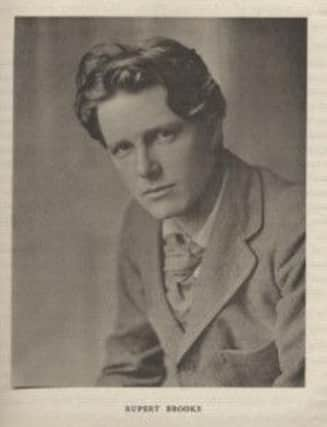The Leamington man who buried poet Rupert Brooke


That there’s some corner of a foreign field
That is for ever England.”
These are well known words from The Soldier by Warwickshire poet Rupert Brooke who died during the First World War.


The man who buried him on a Greek island was his close friend, Leamington-born Sub-Lieutenant William Charles Denis Browne (known as Billy to family and as Denis to his friends).
Advertisement
Hide AdAdvertisement
Hide AdWilliam Browne was a composer, pianist, organist and music critic.
The pair had met at Rugby School and became best friends. They both studied at Cambridge and were active in student productions.
When war broke out they were both given commissions in the same battalion in the newly-formed Royal Navy Division. After almost getting involved in action at Antwerp (Belgium), they were transferred to the force being assembled for the Gallipoli landings. They sailed for the Dardanelles in February 1915 on the SS Grantully Castle.
But Brooke never made it into battle. He died on April 23, 1915, from septicaemia as the result of a insect bite on board and was buried on the Greek Island of Skyros in an isolated grave. William chose the location in an olive grove on the east side of Tis Boukes Bay in the south of the island.
Advertisement
Hide AdAdvertisement
Hide AdTwo days later, in a letter to his friend Edward Marsh (Winston Churchill’s private secretary), William wrote: “I sat with Rupert. At 4 o’clock he became weaker, and at 4.46 he died, with the sun shining all around his cabin, and the cool sea-breeze blowing through the door and the shaded windows. No one could have wished for a quieter or a calmer end than in that lovely bay, shielded by the mountains and fragrant with sage and thyme.”
William went on to fight at Gallipoli but did not survive the slaughter.
As his battalion landed on the beach the scene that met them was a terrible one. There were heaps of bodies with about 20/30 in each. Later he took part in the second Battle of Krithia, an attack spearheaded by the Anzac Corps. During heavy fire from the Turkish defences, resulting in many casualties, William was shot in the neck.
After recuperating in hospitals in Cairo and Alexandria in Egypt, William returned to his battalion, not fully fit, at the beginning of June. But his luck ran out. He jumped into a trench bayoneting a Turk. As he did so, he was shot in the shoulder and then stomach. His body was never recovered.
Advertisement
Hide AdAdvertisement
Hide AdIn a letter from a trench on the day of his death, he had written: “I’ve gone now, too; not too badly, I hope. I’m luckier than Rupert, because I’ve fought. But there’s no one to bury me as I buried him.”
William was born in Leamington on November 3, 1888. His parents were of Anglo-Irish descent. He showed early musical talent, and by the age of 15 was running the choir and playing the organ for all Sunday services at the church his family attended.
He went to Greyfriars Preparatory School in Leamington and in 1903 took up a Classics scholarship at Rugby. It was at Rugby that William first met Rupert Brooke, who was the son of a master and a year older, and they greatly influenced each other.
On June 5, 1915 Edward Marsh, unaware of William’s death, journeyed to Leamington to visit William’s mother and three sisters at 111 Lillington Avenue for the first time. He talked about William, exchanged stories and was shown the family photograph album. Before leaving, Edward went up to his room and wrote William a letter which he would never receive.
Advertisement
Hide AdAdvertisement
Hide AdAfter William’s death Edward Marsh was grief stricken, fearing William’s mother would blame him for his death as he had pushed for William’s commission. However, she told the bereaved Edward that she was “conscious only of the happiness which he must have brought into the lives of William and his companions”.
n Biographical details supplied by Leamington historian David Eason